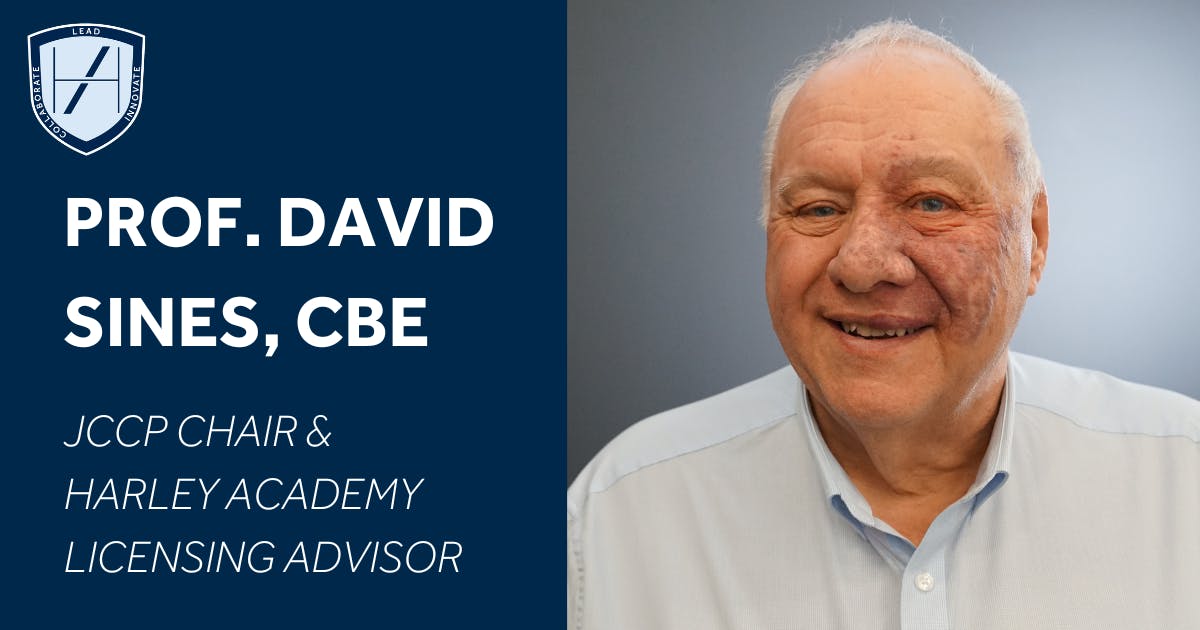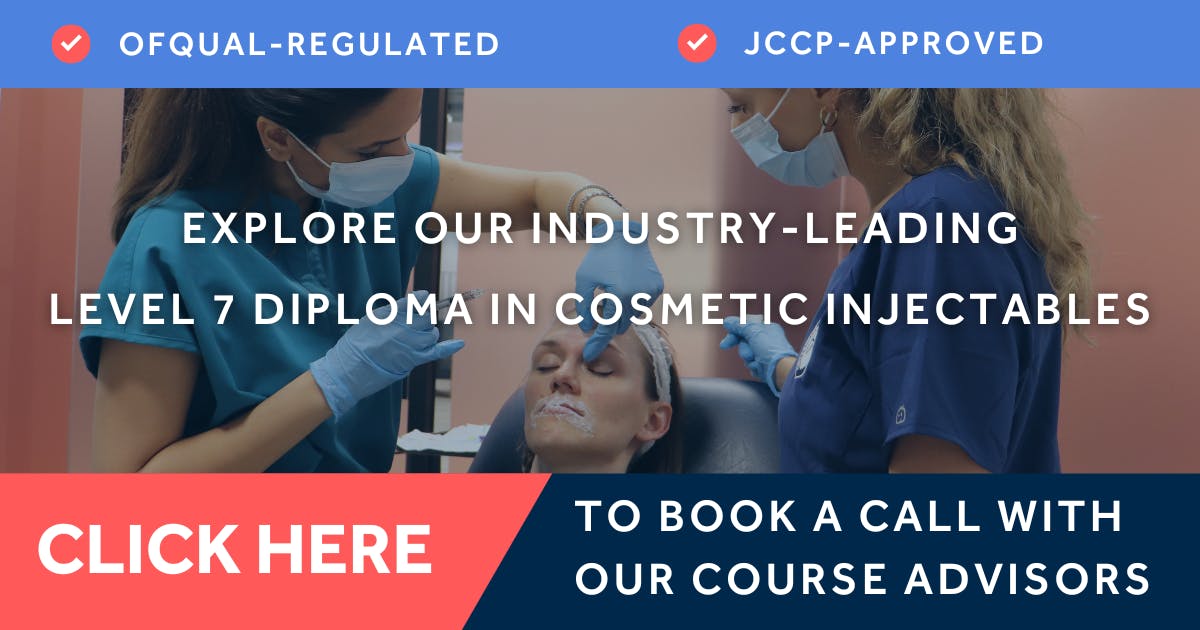What Does Scottish Aesthetics Regulation Mean for England?

Scottish aesthetics regulation is underway, whilst England continues to wait with increasingly dwindling patience.
With pressure mounting on the government to act now, an announcement for England is believed to be imminent. But what is it likely to say?
As we gear up for this long overdue statement it’s worthwhile considering how Scotland has taken the lead in introducing regulatory directives. Given the fact the UK should take a joined-up approach to legal standards, it’s important to look at how this may impact England.
To do this more fully, we interviewed Professor David Sines, CBE. The widely respected Chair of the Joint Council for Cosmetic Practitioners (JCCP), and Harley Academy’s regulatory advisor, Prof. Sines has been at the forefront of driving legislative change for over a decade.
Here, he answers questions arising from the Scottish regulatory proposals:
- What is meant by ‘supervision’ of non-medic aesthetic practitioners?
- Will non-medics practising aesthetics be held accountable to a regulatory body?
- What aesthetics training course or qualification will be needed?
- Will aesthetic practitioners in England be required to be CQC-registered?
- Could aesthetic nurses in England be allowed to hold stock, as they can in Scotland?
If you’re an aesthetic practitioner, or a healthcare professional considering aesthetics training but are unsure what regulation may mean for you, read on… You can also watch Professor Sines’ interview in the video below.

Overview of the current Scottish aesthetics regulation proposals
You can read all about Scotland’s plan to regulate non-surgical aesthetic practitioners and procedures in our article, Scotland to Allow Non-Medics to Practise Aesthetics. This includes a link to the government document outlining all proposed steps, at the time of publication (June 2025).
The key points worth outlining here, are:
- Non-surgical aesthetic procedures to be grouped into categories based on proportionate risk factor and invasiveness, named Group 1, 2 or 3. These equate to England’s proposed Green (1), Amber (2) and Red (3) categories, where Green/Group 1 is the least invasive, and Red/Group 3 is the most
- 1 will contain treatments such as microneedling and some of the less intensive laser treatments
- 2 will contain more invasive treatments, including botulinum toxin, dermal fillers and hay fever injections
- 3 will contain the most invasive procedures, those that are more surgical in nature, generally involving blood or requiring pain management, including PRP and BBLs
- Group 1 procedures will have a licensing requirement with the local authority
- Aesthetic procedures in Groups 2 and 3 must be carried out in Health Improvement Scotland (HIS) regulated premises. HIS is the Scottish equivalent to England’s Care Quality Commission (CQC)
- Non-medics - persons with no professional background in healthcare - will be allowed to practise aesthetics. They are restricted to Group 1 & 2 treatments, but Group 2 procedures must be carried out under ‘supervision’ by an appropriate registered healthcare professional. What ‘supervision’ means is yet to be fully defined
- A mandatory level of aesthetics training and qualification will be set, which all non-medic and medical aesthetic practitioners must achieve in order to practise
- Implementing a legal minimum age requirement for cosmetic procedures of 18 years of age. This aligns with English law.
Scotland consulted in December 2024, and these are the resulting proposals. These will be translated into a first reading in the Scottish Parliament as a Bill in the autumn session of 2025. The aim is to introduce legislation, or at least confirm the introduction of legislation, by April 2026.
Now, we’ll let David do the talking as he explains what’s currently known about the impact these Scottish aesthetics regulations may have on England…
Supervision of non-medic aesthetic practitioners in Scotland
David tells us, “What Scotland have said is that they require a proportionate response and their proportionate response is not to limit who can actually provide those procedures by profession or non-profession. But to state that all persons who perform on group two procedures must meet a new minimum training standard yet to be agreed.
“We don't know what that will be but unless they are an appropriate - note that word - regulated healthcare practitioner, they will need to perform those procedures within a Health Improvement Scotland-regulated premises. So, a regulated premises and the procedures will be regulated by HIS. They won't be licensed, they'll be regulated, meaning registration is required.
“And here's the other big proposed change… Unless you are an appropriate professional or recognised as a registered healthcare practitioner, there will need to be a supervisor on site whenever those procedures are performed.
On who qualifies as an ‘appropriate professional or registered healthcare practitioner’, David clarifies, “We're not quite sure which will be included there. We know that doctors, dentists, nurses and pharmacists prescribers will be there but I think there's room for others to be considered.”
Why appropriate healthcare professionals will need to supervise non-medics for Group 2 aesthetic treatments
“The reason for [this supervision requirement] is this,” David explains. “We know that the knowledge, competence and experience required to administer technical procedures of this nature for fillers and toxins is such that it’s only available at the present time in undergraduate healthcare related curricula. We also know that the requirement for complications management really does require clinical judgment and clinical assessment.
“So, those are the main reasons, plus the products and the actual medicines being used also require a prescriber’s oversight. But complications management is vital.
“But it does assume that the person who is actually providing supervision is competent themselves in the procedure - has the qualifications and training required, and is also competent in the management of complications, and confirms that they're satisfied that the practitioner whom they are supervising is also competent.
“That's really important. That's delegation. And, I think, sometimes regulated healthcare practitioners fail to appreciate they remain accountable for the whole process if they delegate. And that's true of any profession - it's in our codes of practice across the whole spectrum of regulated healthcare.”
Medical professionals accountable to their own regulator for their supervision of non-medics
“The concept of supervision is something we've all been deeply interested in in terms of interpretation. We know Scotland have said ‘supervision within the building’. What does that mean in practice? Does it mean in the room? Does it mean sitting on Nelly's shoulder? Or does it mean you can literally have confidence in the practitioner and continue your work in the next room but be available to be called?
“Well, I genuinely don't think there's going to be a lot more detail on that. I'll tell you my reason. I think it's very much up to the supervising clinician, particularly if they're a prescriber, to make a dynamic assessment of the person to whom they're delegating and also the patient or person that's being treated.
“So, if the person who's being treated presents with any additional significant challenge then, of course, it should be line of sight. That's a clinical judgment from the supervisor. Similarly, if you've got an incredibly competent aesthetic practitioner, then I think you are accountable as the supervisor to move to another room if that's your decision.
“If you've got a novice who's actually learning or you have concerns, you must also exercise the right to be present at any time. Now, I can't say that's how it will land, but that would be my interpretation.
“I think the real trick here is to say, the supervisor has got to exercise clinical judgement. They would be accountable if there was a problem if they delegated without being in the room.”
David notes that, the fact there is an appropriate healthcare professional in the building who has to account to their regulator for their own oversight of non-medic practitioners, is potentially considered enough, here. At least for now.
He shares, “The Royal Pharmaceutical Society is about to review its actual procedures or advice on aesthetic prescribing. They are the overall standard setting group for the NMC, the General Pharmaceutical Council and the Healthcare Professions Council.”
One standard of mandatory, transferable education and aesthetics training across the UK
“There is something called the United Kingdom internal Market,” David tells us. “When we left Brexit we became an independent state, but we also have devolved governments. So we have to look at the impact of what happens in one UK country on the other three and that will have to be balanced with any legislation coming from London, Westminster, Cardiff or Belfast.
“One thing we've made clear - the one thing which is critical: there must be one standard of transferable education and aesthetics training across the four countries.
“It would be absolutely crazy to have a different standard in one country, in the interest of public safety.”
What this means for healthcare professionals working as aesthetic practitioners now
We asked David about aesthetic practitioners’ concerns about ‘will my aesthetics course or existing qualification meet the new standards required by regulation?’
In relation to non-medics, he reiterates that this means, “Any person who can demonstrate that they can actually achieve the norm - the standardised education and aesthetics training standard for the future - should be able to perform procedures under supervision.”
With regards to regulated healthcare practitioners working in aesthetic medicine, he advises, “Many have got Level 7 qualifications. Some of them are plastic surgeons, dermatologists on GMC specialist registers. We've got people going through BCAM accreditation. BAMAN also has a framework of education. We have regulated qualifications that we've approved from Ofqual and, of course Harley Academy, which was the first.
“We're confident that those persons who've achieved the standards that we've set as a benchmark - just as those who've achieved standards with the General Medical Council, through specialist registration or potentially through BCAM - we would argue are in a very good place to demonstrate equivalence or compliance with standards.
“But until we know what those new standards are, where the gaps are, we can't possibly say they will be automatically assimilated as evidence or proof of meeting a new standard for licensing or regulation.
“Having been an educationist for many years and seeing multiple changes in standards from the GMC and NMC, we constantly evolve. What we do is to always undertake a gap analysis of where I am currently in my experiential learning post-qualification - say your Level 7 Diploma in Cosmetic Injectables - and then, I think, it's a matter of demonstrating where those gaps are and maybe top up modules and potentially a much greater focus on CPD.”
“The other route could be one we've advocated.There should be a form of credentialing. So, persons who really believe they are ready for their ‘advanced driving test’ - they've already got a qualification - should be able to actually present for a top-up with evidence, should that be required.
“I also hope there'll be a period of time for colleagues to actually prepare for that transition before legal enforcement occurs. So maybe two or three years - I can't be sure but that would be my advice.”
What should medical professionals considering aesthetics training now do?
David is clear on this matter. He counsels, “Be confident. But I would also say be very careful about selecting any provider at the present time, unless you're sure or feel confident that you will be able to almost ‘accredit’ what you've learned against new standards.
“We can't be definite. So I must stress that on record - I'm not a regulator. We can't confirm what the government will say. So, that whole point about a universal standard for education and aesthetics training. That's got to be, in my view, the bedrock or cornerstone of what England actually determines once they actually release their response to their consultation of September 2023.
“I think Scotland will certainly be advocating [for this]. They've actually stated they're going to develop a new standard for education and training. That's in their proposal.
“I've been advocating and many colleagues have, for a review of the current education and aesthetics training standards. The JCCP has those. They're not universally applicable, of course not, but they are there on the basis of what Health Education England proposed.
“I chaired that review for the government and those standards were overseen by the Department of Health, at that time. So, they are there. Equally we have the National Occupational Standards which are relevant in Scotland, Wales and Northern Ireland, though not mandated in England which is quite interesting. They more or less align.
“We also then have to ask the question, how does all this fit with new standards yet to be developed with Skills England? Skills England is a new organisation that will be setting the standards for apprenticeships. Apprenticeships will definitely be part of a new pathway and they will go up to Level 8 [doctorate level]. So we are using the correct language with Level 7, because it means that the way in which we assess that significantly high level of competence and knowledge will be there.”
Do Scottish HIS requirements mean aesthetic practitioners in England will need to be CQC registered?
“I'm hopeful that we will hear in the not too distant future from England, bearing in mind Scotland have made their decisions now and I'm hoping they'll align,” says David.
“Please don't expect to see the exact same translation in England in terms of who regulates. England consulted on the basis of local authority licensing for the Amber and Green categories. Scotland consulted on HIS for Group 2 and 3.”
Given CQC requirements were only proposed for England’s Red category treatments, it seems unlikely this would deviate from the last set of proposals. However, David cautions, “I genuinely don't know what England will say but I guess it's quite imminent now in terms of hearing from them. Education and training will be at the heart of this because it's a standard for governance, patient safety and assurance, as will insurance be, and of course ‘fit and proper person’.
“Scotland would expect those uniform standards for whether it be Group 1 licences or Group 2 or 3 regulated practitioners with HIS.”
Should there be a regulator for unregulated, non-medic aesthetic practitioners?
In the UK, healthcare professionals working in aesthetics are accountable to their professional regulatory board. However, non-medics have no such regulator.
Scotland’s proposals did cover whether a regulator for non-medic practitioners was possible. Unfortunately, it didn’t get very far.
David explains, “The answer is, as far as I can perceive, it was considered but it was actually rejected on the basis that it would be an unworkable solution at the present time.
“But the fact is that oversight is being provided now and there will be a requirement for registration with HIS, with oversight for Group 2. Remember, Group 3 procedures are utterly restricted to appropriate regulated healthcare practitioners. So, when we come back to Group 1 then they will be licensed. So they'll be accountable to their local authority for their practice. I guess there'll be a register of named licencees from a local authority but certainly there is not a central register.”
Will aesthetic nurses in England be able to hold stock?
Lastly, one of the big questions the Scottish announcement has prompted is, if England is to seek alignment with Scotland on regulatory policies, will cosmetic nurses in England, and the rest of the UK, be able to hold stock?
Currently in England, independent nurse prescribers are not legally permitted to hold prescription-only medicines (POMs) such as botulinum toxin or hyaluronidase, as stock on-site. This is the same for Wales, and Northern Ireland, however, in Scotland aesthetic nurse practitioners can legally hold POM stock in HIS-registered independent clinics, even if they’re not prescribers.
David tells us, “Nurses are not at the present time legally empowered to hold emergency kits or stock medication in England, Wales or Northern Ireland. Now they are in Scotland but it's the Medicines Act. That Act will need to be revised if we're going to be able to implement the supervision or supervisory standards that we advocate at JCCP.
“So we are very clear from the JCCP's perspective - and we're supporting organisations such as the British Association of Medical Aesthetic Nurses - in actually ensuring that the government seeks to review the Medicines Act to permit nurses to carry emergency stock.
“It's not about just opening up holding medicines. It's about emergency stock for emergency use in emergency situations. And that's a conversation we're also having and have had and will continue to have with the NMC. I can't possibly advise what they might say, but I can say they understand the situation.”
With thanks to Professor David Sines, CBE. We will keep close to updates on all the aspects covered above and report back as information becomes available.
All information correct at time of publication
Download our full prospectus
Browse all our injectables, dermal fillers and cosmetic dermatology courses in one document
By submitting this form, you agree to receive marketing about our products, events, promotions and exclusive content. Consent is not a condition of purchase, and no purchase is necessary. Message frequency varies. View our Privacy Policy and Terms & Conditions
Attend our FREE open evening
If you're not sure which course is right for you, let us help
Join us online or in-person at our free open evening to learn more
Our Partners













STAY INFORMED
Sign up to receive industry news, careers advice, special offers and information on Harley Academy courses and services



